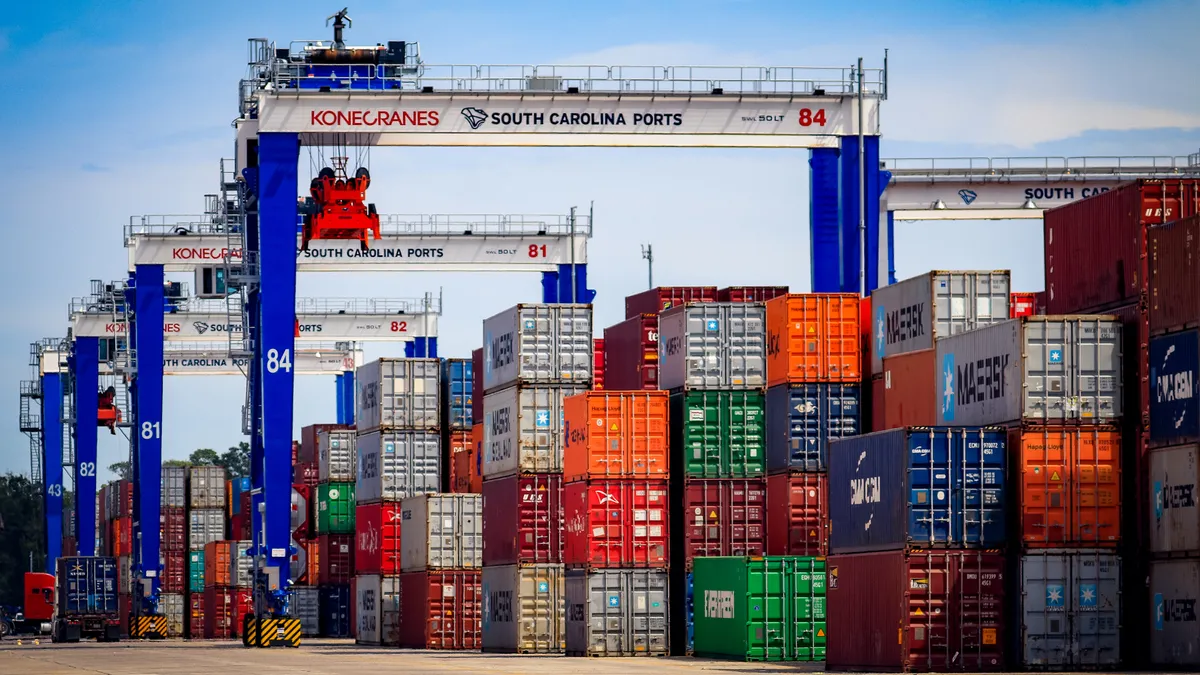UPDATE: Oct. 1, 2020: Roughly 3,500 companies, including Ford, Home Depot, Target, Tesla and Walgreens, have filed suit in the Court of International Trade citing the Trade Act standard for the timing of list 3 tariffs, multiple law firms confirmed to Supply Chain Dive.
"The volume of cases filed within days of each other makes it extremely difficult to simply ignore the impact it will have on the ICT process," Bob Brewer, vice president of marketing at Braumiller Law Group, told Supply Chain Dive.
Legal professionals are currently debating the veracity of the deadline for these suits. And Brewer wrote in a recent article for the Manufacturers Alliance for Productivity and Innovation that importers should continue to file with the expectation that timing will affect the amount they can recoup if these suits succeed.
Dive Brief:
- Several law firms and trade attorneys are urging U.S. importers affected by the Section 301 China tariffs to file lawsuits in hopes businesses could receive refunds on list 3 and 4A tariffs paid to date and not have to pay the tariffs on future imports.
- The calls from law firms follow a claim filed Sept. 10 in the Court of International Trade. Plaintiff HMTX Industries said the Office of the U.S. Trade Representative investigated China's intellectual property policies, and the Trade Act requires USTR to take action within 12 months of that investigation. "But USTR failed to issue List 3 (or subsequent List 4) within that window," the filing states. List 3 imposed 10% tariffs (later raised to 25%) on $200 billion worth of imports from China.
- Importers wanting to file similar suits have until Sept. 21, two years following the date the list 3 tariffs were posted on the federal register.
Dive Insight:
U.S. importers could see immense financial relief if the court grants a refund on list 3 tariffs — a tranche that affected more than 5,700 harmonized tariff schedule codes. U.S. businesses, manufacturers and consumers paid more than $57 billion in tariffs from the trade war's beginnings in February 2018 through April 2020, according to the most recent data from Tariffs Hurt the Heartland.
Attorneys acknowledged the HMTX and subsequent lawsuits may be a long shot. Trade analysts put the odds of success around 10%, according to Jennifer Diaz, board-certified international attorney with the firm Diaz Trade Law.
"I consider it a roll of the dice," she said. "But I'll take the 10% chance. Why not? Let's gamble."
Despite low odds, interest in filing a suit has been high among importers across industries, due to the wide swath of goods covered under the list 3 tariffs, Diaz said. "There's a whole lot of products at stake here," she said.
Diaz received five emails expressing interest in filing a suit in the span of about 15 minutes. "Imagine if all your friends get refunds and you don't. I would have major [fear of missing out]," she said.
To file a claim, businesses have to provide a description of products and the accompanying HTS code for their imports affected by the tariffs. They also have to specify if they applied for any exemptions.
Diaz said interest was particularly high due to the lack of planning time between the announcement and imposition of list 3 tariffs in 2018. The Trump administration announced the tariffs in July, and they took effect in September, allowing little time for businesses to adjust supply chains or find suppliers outside of China if they were not already diversified. Importers had only a few weeks to factor the duties into their total landed costs, and many rushed shipments over the Pacific in hopes of beating the tariffs.
The trade war has fallen out of the spotlight as the pandemic became the forefront risk for supply chains to manage. But the tariffs haven't disappeared, and the duties hampered some medical supply chains' ability to procure necessary products to fight the COVID-19 pandemic.
The combined risks from the trade war and later the pandemic prompted an interest in reshoring or nearshoring. Many businesses have started to shift supply chains to Mexico where tariffs are minimal or nonexistent, lead times are faster and labor wages are lower.
But the move isn't right for all industries, many of which have deep roots and specialized skill sets in China. A majority of companies in a recent AmCham survey said they have no plans to move out of China.
Emma Cosgrove contributed to this report.















